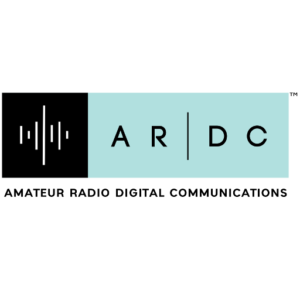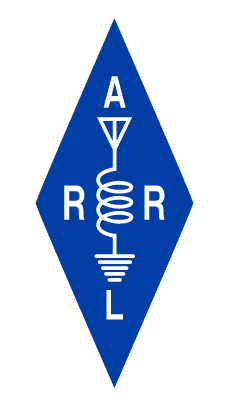The RFI team equipment is on order and delivery will begin this month. When available, the equipment will be used to finalize training materials. Following that, meetings with each team will be performed to train on and distribute the equipment. New England Assistant Director for Spectrum Protection and Use, Rob Leiden, k1ui, will be contacting the team leads to establish meeting venues and dates. Ordering of the two pieces of Division equipment is still in progress but will not directly affect the team equipment distribution. With the arrival of this equipment, the RFI Team project now can leverage the web page process hams can use for hunting RFI by enlisting team support with more capable, standardized equipment.
Spectrum Protection & Utilization
ARDC Press Release for NE Division RFI Grant
 The Amateur Radio Digital Communications (ARDC) has issued a press release to acknowledge the $23.6K grant it awarded to the New England Division to equip its RFI teams. In part, the press release states:
The Amateur Radio Digital Communications (ARDC) has issued a press release to acknowledge the $23.6K grant it awarded to the New England Division to equip its RFI teams. In part, the press release states:
FOR IMMEDIATE RELEASE
ARRL New England Division to Combat RFI
An ARDC grant will provide teams in each of the ARRL’s New England sections with the equipment they need to find and eliminate radio frequency interference.
November 11, 2022—Radio frequency interference (RFI) has become an issue for many radio amateurs in the past decade. Solar energy systems, LEDs, switching power supplies, dimmers, variable-speed motor controllers and other non-linear devices have all raised the noise floor. This impacts radio amateurs across the board, including those participating in emergency communications, traffic handling, and those talking with friends on the air. In some cases, it makes communicating via amateur radio all but impossible.
To combat this problem, the ARRL New England Division has created teams to help radio amateurs find sources of RFI and eliminate or reduce the interference. These teams are also able to provide additional assistance when required, such as working with utility companies, the ARRL, or even the FCC.
A $23,640 ARDC grant will allow the New England Division to purchase RFI equipment for each of the seven sections in the division. Each kit will have the following equipment:
● Icom IC-705 transceiver, outfitted with a backpack and spare battery, for RFI detection and spectrum capture.
● DX Engineering NOISELOOP receiving antenna and a DXE-NL-PRE-ATT-1 preamplifier- attenuator to detect sources of high-frequency RFI.
● Elk Antennas 2M/440L5 Dual-Band Antenna for locating RFI sources in the VHF and UHF portions of the spectrum.
In addition, the division will be purchasing a Radar Engineering RE-243 Broadband RFI Locator for detecting power-line noise and a Radar Engineering RE-245 Circuit Sniffer for detecting indoor noise sources. This equipment will be dispatched to the sections when needed.
The funds will also help the division with on-site training for all seven New England section teams. Rob Leiden, K1UI, Assistant Director for Spectrum Protection & Utilization, notes, “This grant will really help our dedicated teams combat RFI throughout the New England Division.”
The MVARA-NEDECN Connection – A Model Partnership
Jay Taft, K1EHZ and the Merrimack Valley ARA and Bill Barber, NE1B, representing NEDECN have partnered up to connect several DMR repeaters in southern NH with 5.8 GHz mesh networks. This approach makes the internet connections between the repeaters more robust and provides the potential for remote monitoring of the sites, both using cameras and spectrum sampling. The high elevation sites also provide better unobstructed distances between mesh nodes making it possible to deploy more efficient networks using fewer nodes to achieve long distances. One useful feature of the network is the mapping of the various network nodes in layers that improves visualization and planning activities. Use of various symbol types for different services and color coding of node speeds and link types provides a compact but also complete view of the network. Watch for future posts that discuss various other mesh network capabilities as the New England Division witnesses expansion of connected emergency networks using recently approved and future grants. Progress is discussed at the nemesh@groups.io bi-monthly Zoom meetings, next held on Thursday, November 3 at 7 PM. Membership in the group is open to all interested hams.
RFI Teams in New England Continue to Grow
The Eastern MA Section has three new RFI team members, Ed K1EP, Stan, KD1LE and Mark, KA1INE. This brings the total number of team members in EMA to seven and to a total of 29 in the New England Division. Team information is found at New England Division RFI Teams by ARRL Section – ARRL New England Division. All deserve recognition for stepping up to support their fellow radio amateurs and several cases are already in progress. Negotiations for the team equipment have been completed and orders will be placed on receipt of approved ARDC grant funds, expected in the next few days. Distribution and equipment training is planned for the next several months. Any questions about the RFI Team project should be sent to Assistant Director for Spectrum Protection and Use, Rob Leiden, K1UI, at k1ui@arrl.net.
New England Division Receives ARDC RFI Equipment Grant
ARDC has approved a request for RFI hunting equipment for each of the seven sections in the New England Division. The funds should be received in the next few weeks and orders placed for the equipment soon after. Included is both an antenna set and an HF/VHF/UHF transceiver with a spectrum scope. Distribution to each section will accompany training on the equipment. In addition, some high-end equipment will remain in the custody of the Division for sharing when needed in addition to any the ARRL Lab will provide on loan. Any questions can be directed to Rob, k1UI, Assistant New England Director, Spectrum Protection and Use.
Rhode Island Team Completes RFI Team Staffing
With the addition of the Rhode Island Team of Keith, W1KJR, Scott, WX1X and Norm, W1NEP, all seven New England sections now have RFI teams to assist hams having RFI issues in their shacks. Most sections would still welcome volunteers to serve as members or alternates if needed so, if interested, please contact your Section Manager or Technical Coordinator. The team members and contact information for your section can be found on the New England RFI Team page.
RFI Team Equipment Tookits are Defined
At a June 5, 2022 New Hampshire meeting of the New England RFI teams, a set of tools obtained for team use was demonstrated, along with some more sophisticated equipment available for loan, brought by Steve Anderson, W1EMI, of the ARRL Lab. The teams evaluated these and selected those to be obtained for the use of each team, to be loaned from the ARRL or loaned from a New England division inventory as needed. These may now be seen on the RFI Team Toolkit webpage. Action is in progress to obtain funds to procure this equipment for each team and for sharing within the New England Division.
RFI Teams Meet in New Hampshire
RFI Team members from Eastern Massachusetts, Western Massachusetts and Maine met on June 5 in Hollis, New Hampshire with the New England Director Fred Kemmerer, AB1OC; Rob Leiden, K1UI, Assistant Director for Spectrum Protection and Use; Anita Kemmerer, AB1QB, Assistant Director for Mentoring and Ham Development and Steve Anderson, W1EMI, from the ARRL Lab. Also at the meeting were: Stephanie, WA1YKL; Dan, W1DAN; Dom, N1DM and Najm, AB1ZA,
An IC705, DXE HF loop and an Elk VHF/UHF Yagi, obtained by the Director for evaluation, were demonstrated and team members had an opportunity to try them out. Steve demonstrated the RE240, a high-end RFI analyzer suited for power line noise location and an MFJ ultrasonic detector and dish that are available for use by the teams should the need arise. The RE 243 is the newest version of this instrument. Team members also brought along some homebrew and commercial tools they use. Najm showed the others a pocket RFI guide that is still available for purchase. Steve noted that the ARRL RFI guidebook is being revised and will be in print when the Lab update and review is complete. The ARRL Lab is updating its website to reflect solar energy RFI and other recent developments.
The teams selected the tools that will be obtained for use by the section teams. Some of the tools already purchased for evaluation were the Elk VHF/UHF log periodic, the IC705 HF/VHF/UHF transceiver and the DX Engineering HF Loop, Steve Anderson, W1EMI, brought additional tools available to loan to the teams as needed. These included an ultrasonic dish and detector, a Radar Engineers RE240 and VHF yagi for hunting power line RFI and a handheld circuit “sniffer” for finding local sources, especially in the home.
The need for additional web process material was identified to:
- Better define the role of the teams,
- Outline anticipated communications between the teams and hams with pending RFI issues and
- Ensure all the information required by the ARRL Lab is recorded and transmitted to the ARRL Lab when required.
New Quicklink for RFI Troubleshooting Now on Division Home Page
Some hams have had trouble finding the troubleshooting guide. A Quicklink is now on the Division Website home page that will take hams directly to the guide. There, hams will find a process for finding and fixing RFI, links to places to buy or build equipment, power company contact information, teams in each section that will assist when needed and videos and slide decks that discuss RFI finding techniques and experience.
RFI Troubleshooting Guide Adds Power Company Contacts Page
The RFI Troubleshooting Guide RFI Troubleshooting Guide – ARRL New England Division now has a list of the power company contacts for hams to report power line noise-related issues. Hams are encouraged to contact New England Division RFI Teams prior to doing so to make the team aware of the issue, so that they can follow up if necessary. Noise thought to be coming from power company hardware may actually be from another service on a power pole, like a leaking television cable, so try and gather as much information, with the help of the RFI team if needed, to understand the source of the noise. We expect to need to update the maps and contact information from time to time as service areas and company relationships change over time. If you see that we need to change some information, please let us know at k1ui@nediv.arrl.org.
